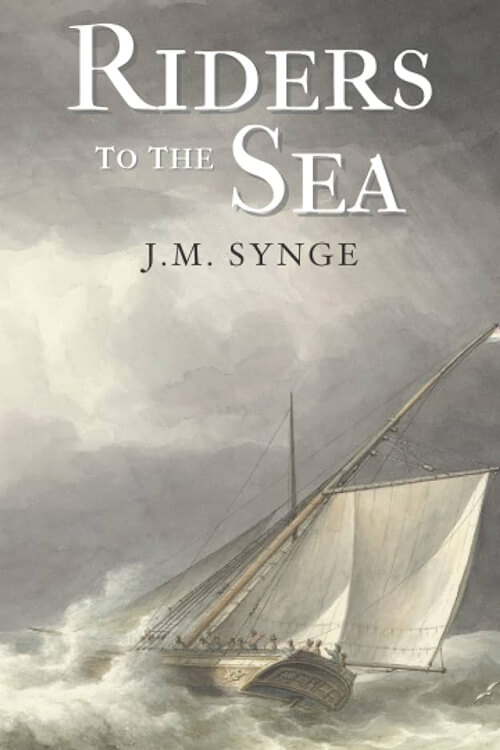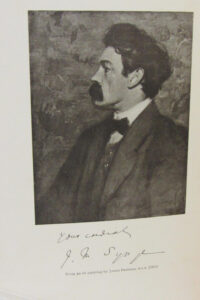
Riders to the Sea
Maurya has lost her husband and five sons to the sea. As the play begins, Nora and Cathleen receive word from the priest that a body, which may be their brother, Michael, has washed up on shore in County Donegal, on the Irish mainland north of their home island of Inishmaan. Bartley plans to sail to Connemara to sell a horse and ignores Maurya’s pleas to stay. He leaves gracefully.
Maurya predicts that she will have no living sons by nightfall, and her daughters chide her for sending Bartley off with an ill word. Maurya goes after Bartley to bless his voyage, and Nora and Cathleen receive clothing from the drowned corpse that confirms it was Michael. Maurya returns home, claiming to have seen the ghost of Michael riding behind Bartley, and begins lamenting the loss of the men in her family to the sea, after which some villagers bring in the corpse of Bartley. He fell off his horse into the ocean and drowned. This speech of Maurya is famous in Irish drama: (raising her head and speaking as if she did not see the people around her) They’re all gone now, and there isn’t anything more the sea can do to me…. I’ll have no call now to be up crying and praying when the wind breaks from the south. You can hear the surf in the east and the surf in the west, making a great stir with the two noises, and they hitting one on the other.
I’ll have no call now to go down and get Holy Water in the nights after Samhain, and I won’t care what way the sea is when the other women will be keening. (To Nora) I was hoping you could give me the Holy Water, Nora; there’s a small sup still on the dresser.
Read or download Book
John Millington Synge
Edmund John Millington Synge (16 April 1871 – 24 March 1909) was an Irish playwright, poet, writer, collector of folklore, and a key figure in the Irish Literary Revival.
Biography
His best-known play, The Playboy of the Western World, was poorly received due to its bleak ending, depiction of Irish peasants, and idealization of parricide, leading to hostile audience reactions and riots in Dublin during its opening run at the Abbey Theatre, which he had co-founded with W. B. Yeats and Lady Gregory. His other significant works include In the Shadow of the Glen (1903), Riders to the Sea (1904), The Well of the Saints (1905), and The Tinker’s Wedding (1909).
Although he came from a wealthy Anglo-Irish background, his writings mainly concern working-class Catholics in rural Ireland and what he saw as the essential paganism of their worldview. Owing to his ill health, Synge was schooled at home. His early interest was in music, leading to a scholarship and degree at Trinity College Dublin, and he went to Germany in 1893 to study music. He abandoned this career path in 1894 with a move to Paris, where he took up poetry and literary criticism, met Yeats, and then returned to Ireland. Synge suffered from Hodgkin’s disease.
He died at age 37 from Hodgkin’s-related cancer while writing what became Deirdre of the Sorrows, considered by some as his masterpiece, though unfinished during his lifetime. Although he left relatively few works, they are widely regarded as highly culturally significant.






